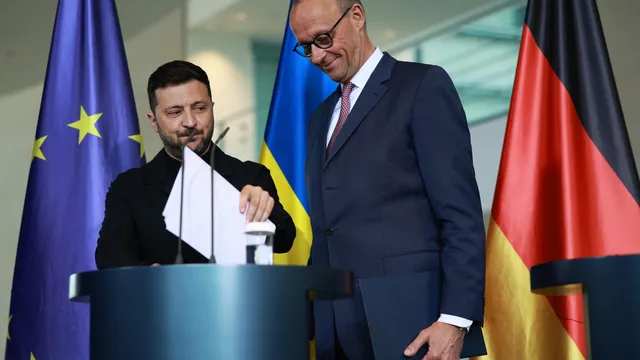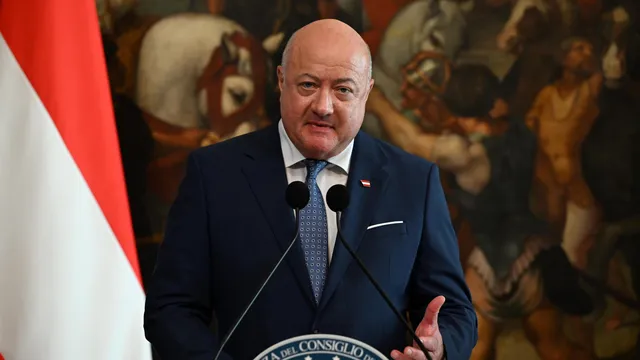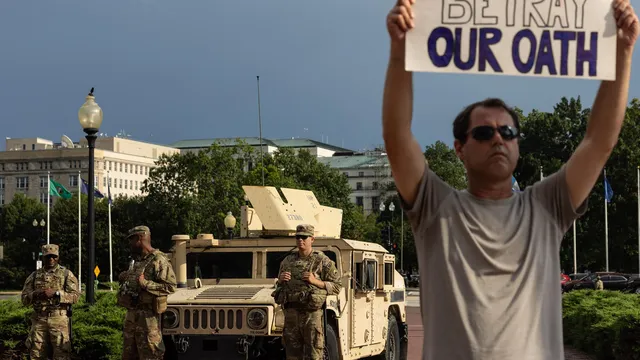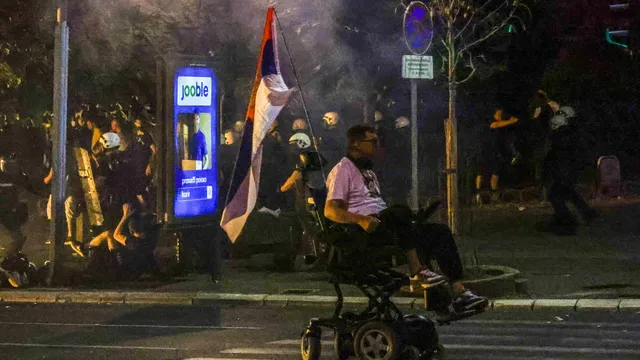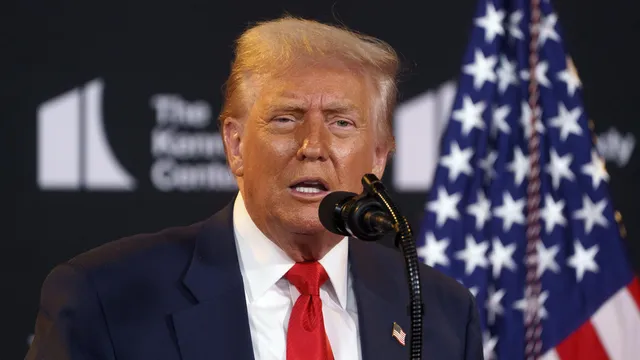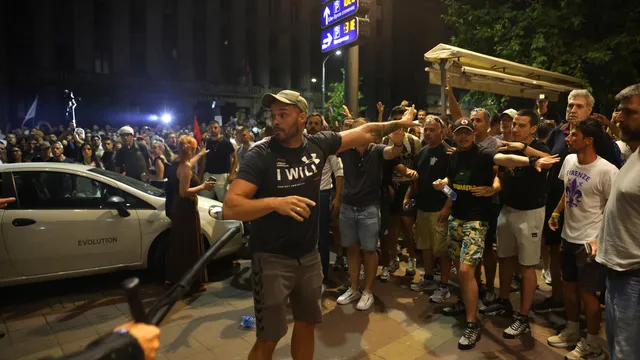German Chancellor Friedrich Merz said Berlin will help Ukraine develop new long-range weapons that can strike targets on Russian territory. His words came during Ukrainian President Volodymyr Zelensky's visit to Berlin, AFP reported.
"Today our defence ministers will sign a memorandum of understanding on the purchase of Ukrainian long-range weapon systems," Merz said, without naming the manufacturers involved.
"There will be no limits on the range, which will allow Ukraine to defend itself fully, even against military targets outside its own territory," the chancellor said at a joint news conference with Zelensky.
Merz, who took power at the start of this month, pledged to continue strong support for Ukraine but without giving details on what weapons Germany is sending, in line with a policy of strategic ambiguity.
"The production of long-range weapons can take place both in Ukraine and here in Germany," he said. "We will not provide further details until further notice."
The chancellor hailed the project as "the beginning of a new form of military-industrial cooperation between our countries that has great potential."
"The two defence ministers are working closely in this area. We want to enable the creation of long-range weapons. We also want to enable joint production and we will discuss some of these things in a one-on-one meeting," he said.
In a television interview this week, Mertz pointed out that there are now "no limits on the range of weapons supplied to Ukraine - not by the British, not by the French, not by us, not by the Americans."
"This means that Ukraine can now defend itself, for example, by attacking military positions in Russia. With very few exceptions, until recently it did not do this. Now it can do it," the head of the German government stressed.
Regarding Nord Stream 2, the chancellor said Germany would do everything possible to make sure that the Russian pipeline would not resume gas supplies to Europe.
"We will continue to increase the pressure on Russia," Merz said. "In this regard, we will do everything we can to ensure that Nord Stream 2 cannot be put back into operation."
The Nord Stream 2 gas link, connecting Russia and Germany via the Baltic Sea, was damaged in September 2022 by huge underwater explosions allegedly caused by sabotage.
The explosions destroyed one of the two pipes of Nord Stream 2 and two branches of its controversial sister pipeline Nord Stream 1.
While Nord Stream 2 never became operational, Nord Stream 1 supplied cheap Russian gas to Europe via Germany for years.
Critics argue that the pipeline's existence has led to Germany and the rest of Europe becoming overly dependent on fossil fuel supplies from Moscow.
German and British media recently reported that Washington and Moscow had discussed the idea of resuming the Nord Stream 2 project during talks to end the war in Ukraine.
Senior political figures from Merz's own party have also expressed preliminary support for resuming gas supplies via the pipeline from Russia before the chancellor definitively ruled out the possibility. | BGNES

 Breaking news
Breaking news
 Europe
Europe
 Bulgaria
Bulgaria
